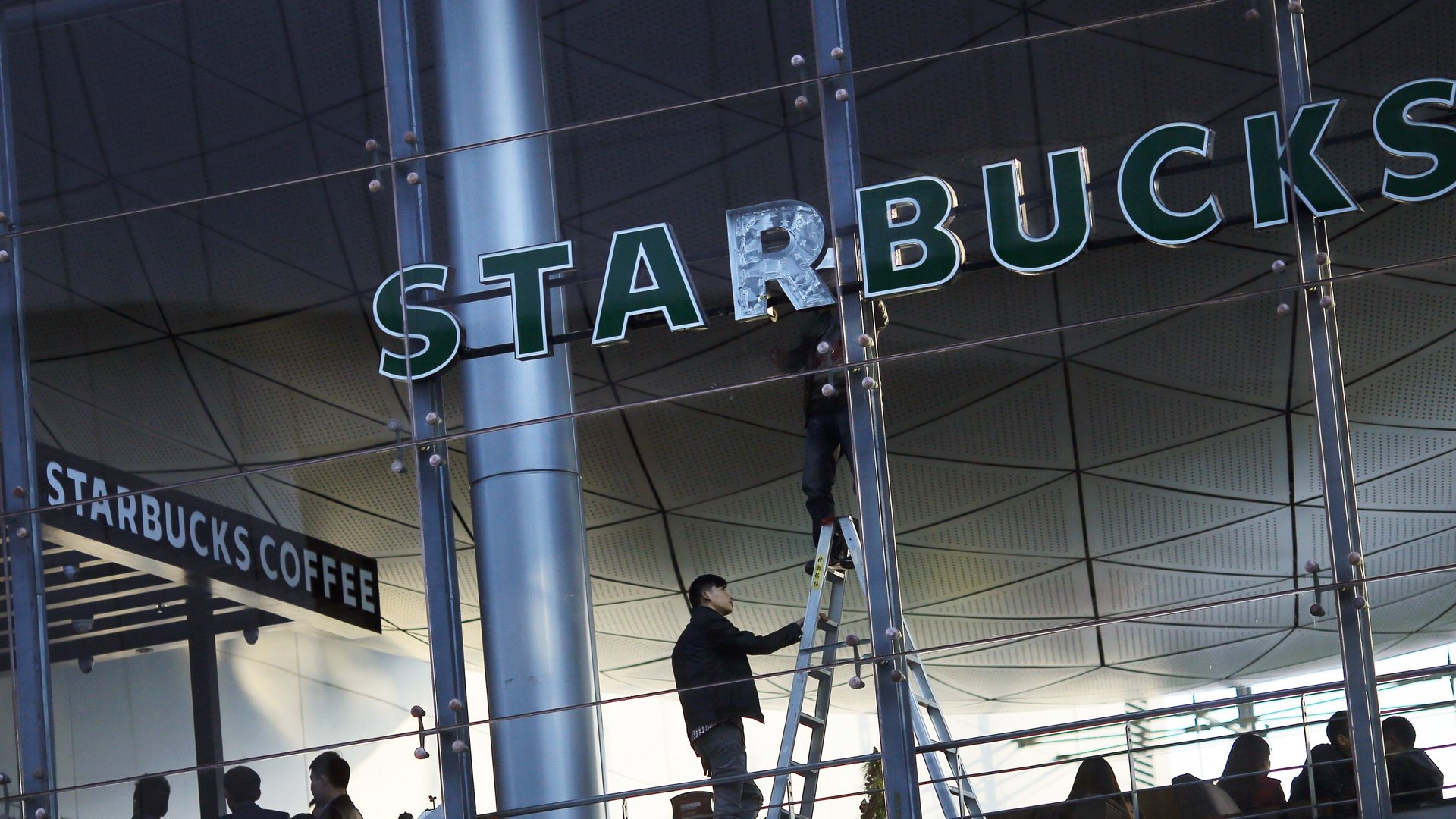Starbucks will open its first coffee shop in Sub Saharan Africa next year
Starbucks–the popular American coffeehouse chain–aims to get its foot into South Africa’s growing coffee retail market by launching its first store in the country–and in Sub-Saharan Africa–during the first half of 2016.


Starbucks–the popular American coffeehouse chain–aims to get its foot into South Africa’s growing coffee retail market by launching its first store in the country–and in Sub-Saharan Africa–during the first half of 2016.
The global coffeehouse company said it would partner with Taste Holdings, a South African franchising company, to roll-out its first store in Johannesburg–and later in other regions on the continent. Starbucks already has stores in Egypt and Morocco in north Africa.
This is not Starbucks first attempt at entering the South African market. Hoping to capitalize on the FIFA World Cup held in South Africa in 2010, Starbucks entered into a deal with Emperica–a relatively unknown marketing agency–and one of South Africa’s largest hotel chains, Tsogo Sun, to bring its products to South Africa for the first time.
Under that agreement, Starbucks products were sold at mini-coffee kiosks in in seven select Tsogo Sun hotels. The deal gave Starbucks a limited, but healthy exposure during South Africa’s international tourism peak, but that partnership ended by 2011.
Nearly six years after its short and marginal presence in the country, Starbucks will find a competitive coffee retail market that’s part of a growing food and beverage sector, with numerous competitor coffeehouses that have grown a foothold across the country.
Why so long?
The first question a lot of people are asking is why it’s taken this long to open a Starbucks in South Africa, the continent’s most advanced economy. Over the past 10 years, the contribution of coffee shops and restaurants to South Africa’s food and beverage sector has grown impressively, prompting many global food chains, like Dominos Pizza and Burger King, to establish their presence in the country’s growing market.
When Starbucks launches in 2016, it will join a group of succesful coffee chains, consisting of large homegrown coffee chains like the popular Vida e Cafè–with over 70 stores in South Africa–to other global players, like the New-Zealand-founded coffee retail chain, Wild Bean Coffee–which has made a name for itself by having a strong presence through their coffee kiosks at fuel stations all over the country.
Another competitor for Starbucks in South Africa will be Seattle Coffee. First launched in the UK by two US-expats in 1993, it launched in South Africa in 1996. After 19 years in the country, it is now one of South Africa’s largest coffeehouse chains with 90 stores around the country.
Starbucks expansion strategy:”Don’t go in alone”
Like many other global companies in the food and beverage sector, Starbucks hates “going in alone.” In most of the new markets in which it has launched, it has teamed up with local companies that know the market well to form licensed partnership agreements. In the UK, Starbucks bought out Seattle Coffee in 1998. About two-thirds of Starbucks’ stores outside of the US are operated through these partnerships.
These local companies directly own Starbucks stores and become responsible for operating the outlets themselves, while sourcing products, branding material and training from Starbucks. Starbucks used the same strategy for its launch in India in 2012, through an agreement with Tata Global Beverages.
Other companies have taken a similar route. Last year, Starbucks’s South African partner Taste Holdings acquired a 30-year license to operate 150 Domino’s pizza outlets in seven southern African countries, starting with South Africa.